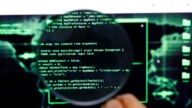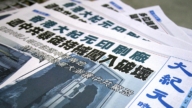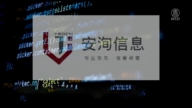【新唐人2012年6月9日讯】日前,国务院三个行政部门联合发布了《互联网信息服务管理办法(修订草案征求意见稿)》,“微博实名制”将从5个试点城市扩展到全国范围,博客、论坛等同时“实名制”。专家指出,由于互联网开放、互联的属性,成为谎言和暴力的天敌,在互联网越来越发达的大环境下,中共如同濒临灭绝的动物,而采取的措施却能把老百姓的纳税钱,再一次塞进利益集团的腰包,给互联网经销商带来麻烦,增加民众的怨恨,加速中共的灭亡。
6月7号,国务院“国家互联网信息办公室”、“工业和信息化部”发布的这份新的管理办法,其中涉及面最广的就是“实名制”。
“全球自由信息运动”创办人张新宇教授认为,“实名制”在老百姓对中共还存有恐惧时会管用,但是今天的中国人在哪里都敢骂中共,“实名制”就失效了。他说,中共对网络的控制,只不过给利益集团带来了一个捞钱的机会, 只会给中共领导人带来更大的灾难。
张新宇:“没有用的,它的自然属性就是开放互联,所以它这种做法,没什么效果。政治改革不搞的话,垮台是必然的,但是垮台有两种,你领导中国走向民主了,大家就算了,如果你还等着老百姓把你推翻,那绝对是,跑到天涯海角都要审判你,中国人报复起来不得了,很恐怖的。”
张新宇还表示,中共为了苟延残喘,不惜把民众的嘴封了,耳朵也塞住,但互联网开放言论、互相交流的自然属性,也断绝了共产党的生路。
张新宇:“共产党是靠谎言加暴力忽悠老百姓,骗老百姓,结果这个互联网恰恰是来揭开它的真相,要它不能做这种事,因此共产党等于没有生存的这种环境了,处于被淘汰和绝种的那种动物了。”
互联网新条例的第十九条规定,网络服务商有义务保存有关记录,向互联网信息内容主管部门、公安机关报告。条例还规定,互联网信息服务提供者应当记录所发布的信息和服务对像所发布的信息,并保存6个月﹔而日志信息,保存12个月,并为公安机关、国家安全机关依法查询提供技术支持。
大陆维权律师唐吉田表示,这些规定会给网络营运上增加很大负担,同时合法性不足。
大陆维权律师 唐吉田:“实际上是属于法外的一种要求,网络运营商他没有义务向警方提供所有的公民个人的信息。”
此外,《意见稿》中还详细列出禁止任何单位和个人在互联网上传播的信息,其中包括:危害国家安全、泄露国家秘密、颠覆国家政权,以及煽动民族仇恨,破坏社会稳定等许多界定范围不明确的内容。
大陆作家荆楚表示,当局迫害任何人都可以加上这些罪名,这些年许多律师、记者、异议知识份子,就是被当局扣上这些帽子而遭到关押。
网络记者周曙光告诉《新唐人》,“网络实名制”在中国早就存在,2005年,他的个人网站就是因为被当局要求实名备案后,遭到关闭。周曙光被逼无奈,一周后,他的个人网站和网络日志内容完整迁移到美国的Dreamhost主机。
采访编辑/刘惠 后制/萧宇
Internet Real-Name System, Accelerating Communist Party’s Collapse
Recently, the three administrative departments under
the State Council jointly issued a draft amendment titled
“Measures for the Management of Internet Information Services.”
Real-name registration will be tested in 5 cities on China’s
major microblog, Sina Weibo, followed by nationwide expansion.
Online forums and microblogs will demand real-name
registration in order to use the services.
Experts point out that due to the openness of the internet and
online networking, it has become an enemy of lies and violence.
Under the internet’s developing environment, the Chinese
Communist Party (CCP) is put more on edge.
The aims of the measures taken is so that, once again,
interest groups may grasp tax payers’ money, putting it into their own pocket.
This brings trouble to the internet service providers,
increasing the public’s anger and accelerating the CCP’s collapse.
On June 7, the State Internet Information Office, Ministry of
Industry and Information Technology issued a new draft
amendment on methods of internet management.
Most of the document’s contents relate to the real-name system.
Prof. Zhang Xinyu, founder of the Global Freedom of
Information Campaign commented on the issue.
He said the real-name system could only work when people
still fear the CCP.
Now people dare to criticize the CCP no matter where,
the real-name system won’t have any affect.
Zhang added, the CCP’s control of the internet can only create
chances for interest groups to make money through scams.
However, it can only bring disasters to CCP leaders.
Zhang Xinyu: “It’s useless, the internet’s nature is to open
communication, so CCP’s new rule won’t have any effect.
Without political reforms, the CCP will certainly collapse.
There are two kinds of collapse: the first being that you lead
China toward democracy and let it happen naturally.
The second, people overthrow you, [in which case] you will
absolutely be put on trial no matter where you escape to.
Chinese people’s retaliation is frightening, very
frightening.”
Zhang said that in order to prolong its last breath,
the CCP attempts to seal people’s mouths and ears.
However, the nature of the internet is to open the freedom of
speech and communication. This nature has cut off the CCP’s survival.
Zhang Xinyu: “The CCP lives on lying to and deceiving people,
the internet is there to expose its evil nature, stopping its bad behavior.
This means the CCP has no environment to survive,
like animals facing the extinction and elimination.”
Rule 19 of the draft amendment stated that internet service
providers have a responsibility to backup data and report to Internet Information office and the police.
The draft requires service providers to record their clients’
sent and received information, keeping it for 6 months.
In addition, logs are to be kept for a year, and technical
support must be provided to the police and national security agencies.
Human rights lawyer Tang Jitian said that these rules will
increase significant burden on internet operation. At the same time it lacks legitimacy.
Tang Jitian: “Actually the rules are outside the law, internet
providers have no obligation to leak users personal information to police.
Without supervision and restriction, there’s no guarantee that
the information won’t be misused by police. It also implies violation of civil rights.”
The draft details the prohibition of any unit or individual
spreading information online.
It includes: endangering national security, leaking state secrets,
subversion of state power, incitement to ethnic hatred,
as well as undermining social stability.
Many regulated contents are still unclear.
Writer Jing Chu said that the authorities can persecute
anyone with these charges.
Many lawyers, journalists and intellectuals were subjected to
imprisonment after being labeled with these charges.
Online reporter Zhou Shuguang told NTD that the real-name
system has already existed in China.
In 2005, his personal website was shut down after the
real-name system was implemented.
One week later, Zhou had no choice but to move his website
server to the U.S. web host named DreamHost.




























